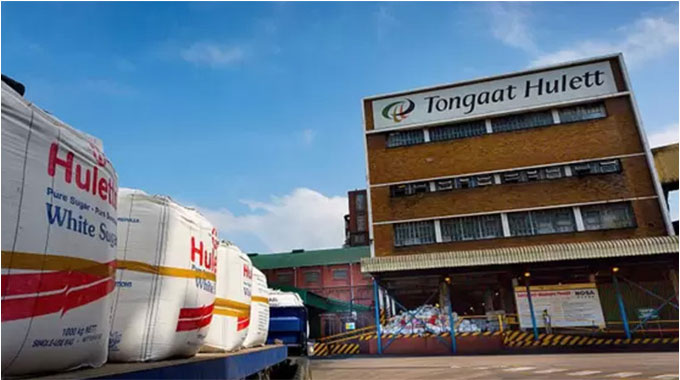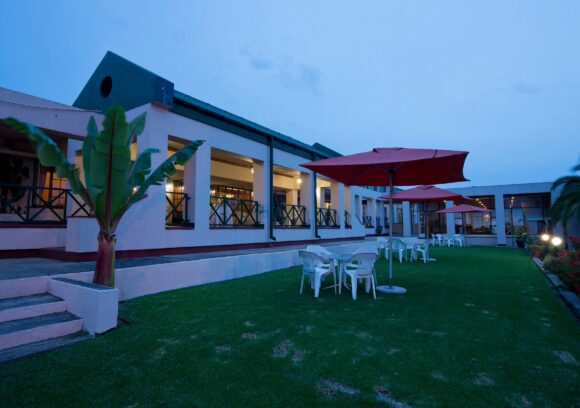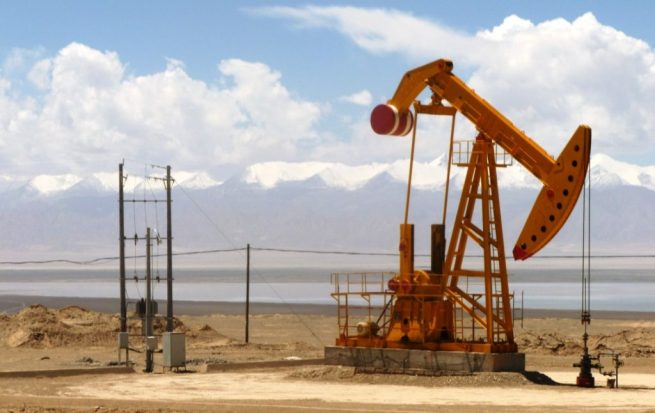Oil firm gets more land for exploration
Invictus Energy’s oil and gas exploration area in Muzarabani and Mbire districts, Mashonaland Central Province, has increased by a whopping 600 percent to 709 300 hectares following a new framework agreement with the holder of the land title, the Sovereign Wealth Fund of Zimbabwe (SWFZ).
Invictus’ 80 percent owned subsidiary, Geo-Associates and SWFZ, executed a Heads of Agreement (HoA) last week to increase the firm’s Special Grant 4571 licence (exploration) area from 100 000 hectares to 709 300 hectares. This will entail a new commitment from Invictus to drill two exploration wells at a cost of about US$25 million as the firm searches for game-changing hydro-carbons in the area.
The Government of Zimbabwe, through the SWFZ, will hold 10 percent equity in the project without spending cash during the exploration phase ( known as back-in-right), if the project achieves commercial discovery.
Invictus managing director Scott MacMillan said the increase in the acreage meant enlarged area to select the best prospects to drill exploration wells, which increased the firm’s prospects of a commercial discovery.
He said a huge amount of work goes into preparing for exploration drilling and the actual drilling, with chances of hydro-carbons find estimated at thresholds around 10 percent and 20 percent for basins that are more prone to oil/gas deposits.
“So it’s critical that you grade the acreage and prospects and drill the ones that have the best chance of success because you only get a couple of shots at it. In Namibia they drilled 30 non commercial wells between Kudu field gas discovery in 1974 and the Graff and then Venus discoveries this year.
“Zimbabwe cannot afford the same number of failures before we find something commercial. But in exchange for the acreage we have committed to expand the seismic (geophysical data capture) programme to enable us to identify any additional prospectivity and also drill a second well to test another play type to increase our chance of success,” he said.
Back-in-right is a feature of oil and gas contracts that allows a party, often a government, to acquire an equity participation in a project once the commercial discovery has been made without carrying the costly risk of exploration.
The equity rights are in line with the provisions of further agreements signed last week between project developer (Australian firm), Invictus Energy, and the Government of Zimbabwe.
The agreements on the exploration rights and conditions thereof relating to the Muzarabani — Mbire oil and gas project (Caborra Bassa Basin) come on the back of promising results of studies supporting possible existence of petroleum in the area. Indications are that Invictus initial exploration tin he area, 100 000 ha were potentially the largest undrilled seismic (geophysics) structure onshore Africa, possibly hosting 9,25 trillion cubic feet of gas and nearly 300 million barrels of oil.
Invictus says 1 trillion cubic feet can generate 500 megawatts of power for more than 20 years.
Under the new framework agreement, Invictus’ exploration area will be amalgamated with the Cabora Bassa South Reserved Area, which belongs to the SWFZ, to cover the entire Cabora Bassa Basin in Zimbabwe.
The SG 4571 area increase is now awaiting procedural government gazetting.
A sovereign wealth fund is a state-owned investment fund composed of money generated by the Government, often derived from a country’s surplus reserves, minerals or any other sustainable source.
It is set up to manage, preserve and create wealth to stabilise and grow the economy in
times of crises and to create a pool of assets to benefit future generations.
The SWFZ will hold 10 percent equity in the potentially multi-billion (US) dollar petroleum project without carrying out the risk of exploration costs, if commercial oil/gas deposits are discovered.
“Commercial discovery” means a discovery of petroleum that has been demonstrated to contain petroleum reserves that justify the investment of capital and effort to bring the discovery to production.
“The company will increase the minimum work programme obligation for the current second exploration period to drill two exploration wells, including the Muzarabani-1 prospect and one exploration well in the expanded area.
“The rig contact with Exalo Drilling SA, confirmed on 10 March 2022, accommodates a two well drill programme anticipated to commence in late June 2022,” Invictus said in a statement this week.
Geo Associates and the Government of Zimbabwe will also conclude the Petroleum Production Sharing Agreement, which will encompass the legal and fiscal provisions to govern the project and the development of any discovered resource.
Invictus plans to start exploration drilling in Muzarabani — Mbire districts of Mashonaland Central Province around the end of June or early May this year.
Results from further processing of data gathered by French oil giant, Mobil, in the early 1990s and new data that Invictus collected in September last year have shown encouraging results that oil and gas may be present in the Caborra Bassa Basin.
Officials at Invictus Energy said the commercial discovery of oil and gas would bring enormous benefits for the country, among them energy self-sufficiency, fiscus revenue, growth in exports and employment creation.
The proposed Petroleum Product Sharing Agreement (PPSA), administered by the Ministry of Energy and Power Development, contains the fiscal provisions of the project, including the Republic of Zimbabwe’s profit/product share, and takes effect following commencement of the production phase of the project.
The PPSA will provide the Republic of Zimbabwe with a share of any developed resource in addition to the SWFZ equity (assuming back-in-right is exercised).
Together, the Petroleum Exploration Development and Production Agreement (PEDPA) executed last year and PPSA form the Production Sharing Agreements (PSA) between Zimbabwe and Geo-Associates, demonstrating the Government’s commitment to implementing investor friendly reforms and promoting and protecting foreign investment.
The PEDPA signed in March last year and the PPSA to be signed following enactment of amendments to legislation, will establish a predictable, stable and transparent legal and fiscal regime.
This would be commensurate with terms in the region, following international best industry practice, meeting the country’s aspirations and providing investors and the Government a fair share of any developed resources.
The PPSA has undergone independent review and is expected to be finalised and executed shortly.-eBusiness Weekly










